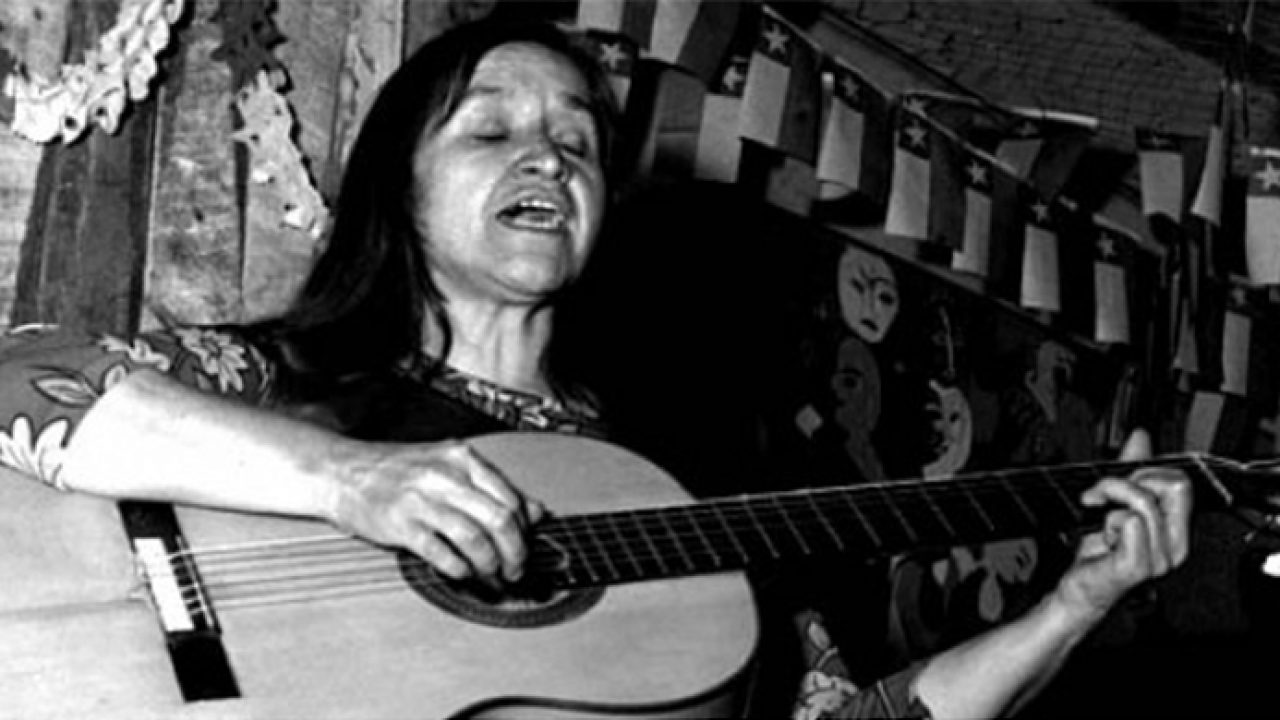Violeta del Carmen Parra Sandoval was born in San Carlos, Ñuble, Chile on October 4, 1917, to a struggling family of twelve. Her father, Nicanor Parra Alarcón, was a music teacher and her mother was a seamstress who taught Violeta and her siblings traditional folk songs. They lived in poverty and perambulated around the country in search of work, which led them to Santiago de Chile, Lautaro, and finally Chillán where Violeta started singing and playing the guitar.
After her father died in 1929, her family's circumstances considerably deteriorated and Parra and her siblings were faced with finding work to put food on the table.
The Parras performed in nightclubs in the Mapocho district, interpreting boleros, rancheras, Mexican corridos, and multiple other styles to make ends meet. It was during one of her performances that she met Luis Cereceda, a railway driver who, years later, she would marry and have two children with, Isabel and Ángel. Cereda was a militant communist which led to Parra's involvement in the progressive movement and in the Communist Party of Chile.
Throughout the years, she continued performing while -encouraged by her brother Nicanor- Parra began to collect and collate authentic Chilean folk music from all over the country. She even abandoned her old folk-song repertoire and began composing, bringing her a good measure of popularity in the region.
In 1954, Parra also hosted a successful radio program 'Sing Violeta Parra' for Radio Chilena. The program was most often recorded in places where folk music was performed, such as her mother's restaurant in Barrancas. Along the way, Violeta also met Pablo Neruda and years later he would dedicate the poem 'Elegia para Cantar' to her.
Violeta composed the song 'Gracias a la Vida' in La Paz, Bolivia in 1966. By 1971, the song was popularized through every crevice of Latin America by Mercedes Sosa and later in Brazil by Elis Regina and Joan Baez in the United States. The song was also re-recorded by several Latin artists and Canadian Michael Bublé to gather funds for the Chilean people affected by the 2010 earthquake.
It still remains one of the most covered Latin American songs in history.
In 1967, Parra committed suicide via gunshot. Memorials were held both in Chile and abroad due to her being the inspiration for several Latin-American artists, such as Victor Jara and the musical movement of the "Nueva Canción Chilena", which renewed interest in Chilean folklore to this day.
The Violeta Parra Foundation was founded 25 years after her death at the initiative of her children. They wished to group, organize and disseminate her still-unpublished work. In 1977, thanks to her Foundation, the Department of Cultural Affairs, and the Ministry of Foreign Affairs of Chile, her visual work was exhibited in the Museum of Decorative Arts of the Louvre Museum in Paris.















